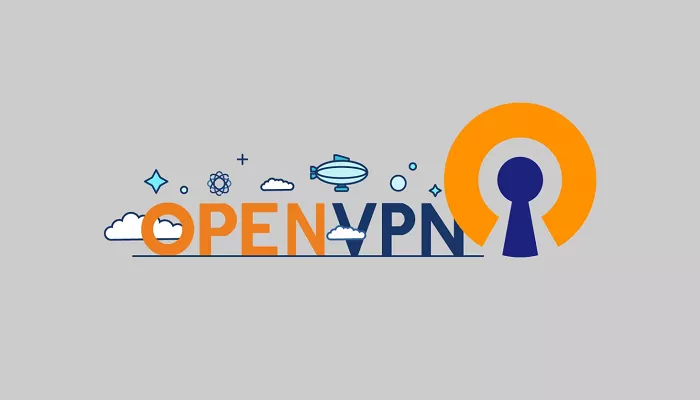OpenVPN is a widely used, open-source VPN protocol known for its strong security, flexibility, and cross-platform compatibility. Whether you’re a casual internet user, a business professional, or a network administrator, understanding OpenVPN can help you protect your online privacy and secure your data.
What is OpenVPN?
OpenVPN is a Virtual Private Network (VPN) protocol that creates secure point-to-point or site-to-site connections. Developed by James Yonan and released in 2001, OpenVPN utilizes the OpenSSL library for encryption and supports various authentication methods, including pre-shared keys, certificates, and username/password combinations.
As an open-source project, OpenVPN benefits from community contributions, regular updates, and transparency, making it a trusted choice for secure communications.
Key Features of OpenVPN
1. Strong Security
OpenVPN employs robust encryption standards to ensure data confidentiality and integrity. Key security features include:
- Encryption: Uses AES-256-bit encryption, trusted by security experts worldwide.
- Authentication: Supports X.509 certificates, pre-shared keys, and login credentials.
- TLS Protocol: Uses TLS for secure key exchange during connection setup.
- Perfect Forward Secrecy (PFS): Ensures new encryption keys are used for every session, reducing risks if a key is compromised.
2. Cross-Platform Compatibility
OpenVPN works with many operating systems, including:
- Windows
- macOS
- Linux
- Android
- iOS
This wide support means you can use OpenVPN to protect your devices no matter what system you’re using.
3. Flexibility and Configurability
OpenVPN is highly flexible, making it ideal for different user needs and network conditions.
- Protocol Support: Works with both UDP and TCP protocols.
- Port Options: Can use any port, including port 443, to avoid firewalls.
- Network Compatibility: Can navigate NAT and other network obstacles easily.
4. Open-Source Advantage
Because OpenVPN is open source, anyone can inspect and improve its code. This leads to:
- Security Transparency: Bugs and vulnerabilities can be identified and patched quickly.
- Customization: Organizations can adapt OpenVPN for their unique needs.
- Community Support: A large user base and detailed documentation are available to help with issues.
How OpenVPN Works
OpenVPN builds a secure tunnel between your device and the VPN server. Here’s how it works:
- Authentication: Both client and server verify each other’s identities using keys or certificates.
- Key Exchange: Secure keys are exchanged using the TLS protocol.
- Encryption: Data is encrypted using secure ciphers such as AES-256.
- Data Transmission: Encrypted data travels safely through the tunnel.
- Tunneling: OpenVPN uses TUN or TAP to create virtual interfaces for routing or bridging data.
- UDP or TCP: You can choose between speed (UDP) or reliability (TCP), depending on your needs.
Benefits of Using OpenVPN
1. Enhanced Privacy
OpenVPN hides your IP address and encrypts your traffic, keeping your data away from hackers, ISPs, and surveillance.
2. Bypassing Geo-Restrictions
OpenVPN can disguise your VPN traffic as regular web traffic by using TCP port 443, allowing you to access blocked websites or services.
3. Safe on Public Wi-Fi
Using OpenVPN on public networks like coffee shops or airports ensures your internet connection is encrypted and safe from eavesdropping.
4. Remote Work Security
Many companies use OpenVPN to provide employees with secure remote access to internal systems, improving productivity without compromising data security.
5. Cost-Effective
OpenVPN is free and open-source. Even businesses can deploy it without licensing fees, making it a budget-friendly VPN solution.
Common Use Cases
- Remote Work: Securely access company networks.
- Travel: Use local services from home while abroad.
- Access Blocked Content: Reach websites restricted in certain countries.
- Secure File Transfers: Encrypt and safely send files.
- Gaming: Improve latency and access regional game content.
OpenVPN vs. Other VPN Protocols
| Protocol | Security | Speed | Ease of Use | Open Source |
|---|---|---|---|---|
| OpenVPN | Very High | Moderate | Moderate | Yes |
| PPTP | Low | High | Easy | No |
| L2TP/IPsec | Moderate | Low | Moderate | No |
| WireGuard | Very High | Very High | Easy | Yes |
Summary: OpenVPN is the most mature and well-tested protocol. While WireGuard offers better speed, OpenVPN provides more customization and broader device support.
Setting Up OpenVPN
For Individual Users
- Choose a VPN Provider: Select a service like NordVPN or ProtonVPN that supports OpenVPN.
- Install OpenVPN Client: Download from openvpn website.
- Import Configuration Files: Use the .ovpn files provided by your VPN service.
- Connect: Launch the client and connect securely to a server.
For Businesses
- Set Up OpenVPN Server: Use OpenVPN Access Server or the open-source version on Linux.
- Configure Certificates and Keys: Set up user authentication.
- Distribute Client Files: Send users the configuration files.
- Monitor Connections: Use logs and management tools for oversight.
Is OpenVPN Safe?
Yes. OpenVPN is one of the most secure VPN protocols. It uses strong encryption, secure key exchange, and has been reviewed by cybersecurity experts for years. Its open-source nature also ensures ongoing community support and fast patching of any discovered vulnerabilities.
Limitations of OpenVPN
- Requires Manual Setup: Setup may be difficult for beginners.
- Slower Than WireGuard: Performance is good, but not the fastest.
- Can Be Blocked: Some strict firewalls may detect and block OpenVPN traffic.
Despite these, many users still prefer OpenVPN for its security, reliability, and transparency.
Conclusion
OpenVPN is a powerful, secure, and flexible VPN protocol trusted by millions of users and businesses worldwide. While it may take a little more effort to configure, its benefits far outweigh the downsides. From protecting privacy on public Wi-Fi to enabling secure remote work, OpenVPN remains a top choice for anyone serious about online security.
If you’re looking for a VPN solution that prioritizes security, compatibility, and control, OpenVPN is one of the best options available today.

